The following item isn't something "new" in the least bit. It was first printed in my old college newspaper more than six years ago. I had no plans to write something that week: the following edition would be my "farewell column" before graduation but my editor told me the morning of deadline day that he had too much empty space on the op-ed page for this week and he needed someone to fill it. Since he'd considered me to be his "wordy wordy monkey" I obliged him by promising to write something... even though I had
what I was going to write about.
So, I wandered around campus the rest of that day, trying to find my Muse. Listening for whatever it was that I was supposed to write about. Elon University really is one of the best places I've ever found to walk around until something presents itself. Lot of rain that day. I think it was finally about 4 p.m. that some things "clicked" in my mind, and I slammed out the following essay. Two days later when the paper hit a lot of friends told me that it was "a really deep article" that they had to try and wrap their brains around. I didn't intend for it to be OVERLY heady... this was the purest essence of my take on things that got poured into MS Word, just because a friend was desperate for filler material and asked if I could provide it.
I refound this a little while ago. Looking back on it now, I have to wonder what exactly was going on that day that made the cylinders fire as they did. It's a very dated read now because it refers to Y2K, the situation in Kosovo back then, and Star Wars Episode I which was getting released the following month. The first part of it reads like a guy with a "Pollyanna" schtick going. The rest of it though... well, in light of the situation our world is in now, and how fast things are headed downhill, it just seems downright too prophetic: we ARE fast approaching the worst stagnancy that human culture has ever known, and very few people seem to want to stop that train from flying off the track. The stuff about "empire", that now seems like too much foretelling of the rise of the neo-conservatives who've gotten us so bogged down in Iraq. A lot of other things that make this article resonate so strongly today.
'The end of the world as we know it?' I don't think soChris Knight
Columnist
According to some students of esoteric lore, the next month or so is when Nostradamus prophesied the end of civilization would occur, with a great cataclysm.
Nilus, a fourth century Christian, foretold of the coming of the Antichrist before the end of 1999, after describing in detail such things of this century as telephones, aircraft and world war.
All over the world people have become so terrified of the "Y2K bug" that some are digging bunkers and stocking up on food and ammo, hoping to "ride out" what they believe will be a global catastrophe.
One of the hottest sells in bookstores lately has been Apollyon, the latest of the "Left Behind" series set in a post-Rapture world (think of Book of Revelation meets Tom Clancy, meets The Winds of War). Meanwhile, Christians everywhere have begun interpreting the times to mean that the Second Coming of Christ must soon come to pass. Some say that Kosovo will erupt into World War III.
How appropriate that in the midst of "millennial madness," Stephen Jay Gould spoke here a few weeks ago about the times we live in. Especially of late, Gould has been critical of the idea that we can know the future. According to Gould, the obsession that some people are having about the "end of the world" is so much foolishness, particularly religiously-inspired eschatology.
I am a Christian. Meaning that I have accepted Christ as my personal savior, and I believe that a relationship with Him is the only way that a person can enter into the presence of God. I came into that relationship after a life of experiences, especially the experiences I've had at Elon College. So too, as part of my faith, do I believe that Christ will return someday. As a Christian, that much of the future is already established.
That doesn't mean I'm gonna join in the frenzy, though. As Jesus Himself said, "NO MAN knows the hour..." Whether it happens in the next several months, or even in my lifetime at all, that's not something to be worried about. Shoot, I got more stuff out the wazoo to take care of than I know what to do with: post-graduation plans, gearing up to see Star Wars Episode I: The Phantom Menace, wanting to travel and see more of the world, get married someday... TONS of stuff. The stuff that life is made of, y'know? I mean, remember Bobby Fischer? He was the world's greatest chess player back in the Seventies. The guy had everything, then he dropped out of sight and started living in cheap motels and getting boozed up, because he was waiting for the Second Coming. That ain't LIFE, man! And that ain't what God wants you to do with it, either: He wants you to be living for Him, but still be grabbing life by the horns and not letting go!
Still, regardless of all the end-time scenarios that are getting chucked around lately, I do wonder if humanity has reached a summit... or perhaps a plateau is a better term. Professor Gould may have been partly correct that we can not predict the future with any reliability. But perhaps, it is that we no longer have any reason to predict the future. If we are not at the end of the world, we could be at an end of history.
Note that I say "an end," not "the end." By "an end of history," I am not speaking of the apocalyptic or supernatural at all. It is something that man has brought upon himself, whether by grandiose dreams and designs spread out over millennia or the simple cravings of the human nature that have steadily brought manking to this point. It is the course of history, culminating in a long-sought "equilibrium" on a global scale.
Throughout recorded time, history has been divided into epochs of "empire:" the Babylonian, the Greek, the Roman... onward until the English and finally, the American empire. The "empire" is the binding force of human civilization: for good or ill, "empire" determines the value of currency, establishes the frontiers, and interprets and enforces the law. "Empire," whatever its name, is what man looks to as the identity of whatever time it is he lives in.
"The empire" has remained the same; only its seat has changed. The influence exerted by our leaders in Washington D.C., though in a radically different form, is essentially the same as that of, say, Xerxes of the Persians, two and a half thousand years ago. And the same of Hadrian, and the khans of Mongolia.
And up until about the middle of this century, "empire" has taken the course it had been on for the past six thousand years. And then something became apparent: that the growth of empire had increased the effect that regionalism was having worldwide.
Consider the two World Wars: they were not true "world wars" at all, in that they were confined to two separate theaters in Europe and the Pacific Rim. But economies and whole nations worldwide were affected all the same. And after the conflicts, there was one undeniable seat of empire: the United States.
There has been one great characteristic that all forms of "the empire" have shared throughout time: growing centralization. It's an aspect of the increase in power that comes with grasping the economic and military reins.
And with this centralizing of military, infrastructure, and economies, there is almost always a breakdown of empire. Consider the Roman Empire, which became so ingrown and heavy upon itself that it collapsed, unable to bear its own burden which had been added to by internal corruption. The Roman Empire fell, only to have "empire" further built up upon its ruins, expanding further.
Now consider that for all intents and purposes, America has become the new Roman Empire, only ours has a truly global influence and a far greater disadvantage.
Without any further frontiers to push into (unless you want to consider colonizing Antarctica), and with the rest of the world either province or periphery, WHERE is it left for "the empire" to expand, to add unto itself? There is nowhere... and no other left to take up the burden of "empire."
There becomes a lack of vitality, and subsequently a waning drive for civilization to improve upon itself. Advances in sciences and the arts steadily dwindle. Ultimately, all that is left is for the seat of empire to try to hold itself together. That has become America's motivation on the world stage in this decade (and I think that trying — and failing — to maintain the situation in the Balkans is part of that effect).
Here's where I'm getting at with all this: as this world becomes more "globalized," we are looking at a breakdown of everything we have come to cherish of human civilization. It's losing its vibrancy, everything is becoming lackluster. There’s an "equilibrium of mediocrity" we are approaching.
Consider that the American of 1800 had far, FAR more rights than you or I enjoy in 1999, with far less to pay for them but his or her own drive and initiative. Growing centralization on a global scale has hit you and me in ways both apparent and subtle... all in the name of a global "community" but more accurately, a global "empire."
This is why I said we are at "an end of history," because in such a time as we are entering into, what is left for history books to be written about? Human progress is slowing down under its own weight for the sake of empire. It needs to break free, with as few limits as possible.
I have some ideas for that. First, we cannot change the world overnight: we need to start "locally." America should consider taking a "protectionist" or perhaps even a bit "isolationist" stance, at least for a decade or two. We need time to examine ourselves internally, and try to determine who we are again, and where we are going.
Second, we should take steps to end centralizing everything here into what is becoming one giant bureaucracy. Localized governments are far more efficient than our federal one. This may sound extreme, but a HUGE step would be to eliminate the Department of Education and let communities run their own schools. Putting all the schools in this country into one basket just opens itself up to incredible abuse and corruption, at the cost of the best education we can give this country's children.
Third, we should really consider getting out of the United Nations. The UN began with the noblest intentions, but time has proven it to have been a grand failure so far as creating and "maintaining" peace goes. It was doomed from the start, because it took the best elements of "empire" and magnified its vulnerabilities to human nature.
I've already argued in past columns, human nature is, on its own and without God, inherently corrupt. If we get out of the UN, now, we will be setting an example to all nations of the world: that they have to start looking to God and their own experiences, and not the illusion of combined human "wisdom," to guide them.
For the young people of our generation, this world still holds great promise. I believe that each of us has God-given potential to make something better of this world than how we first found it.
But we need to take a good, hard look at what this world is becoming now, if we want to someday leave our children and theirs with the same opportunities that we have been blessed with.
It sounds like an impossible task to cut off "an end to history," to break apart an "empire," but it can be done. It might be hard, but it will be fun. And if we need any more enticement, think of it this way...
It will be revolutionary, in every sense of the word.
Like I said, this was written over six years ago, and it's pretty open to interpretation, so feel free to do so.
 "You have failed me for the last time, Admiral." And with those words from Darth Vader, Admiral Ozzel - Michael Sheard's character in The Empire Strikes Back - went down in history as the first of many victims of Vader's deadly "Force choke".
"You have failed me for the last time, Admiral." And with those words from Darth Vader, Admiral Ozzel - Michael Sheard's character in The Empire Strikes Back - went down in history as the first of many victims of Vader's deadly "Force choke".










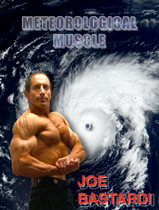
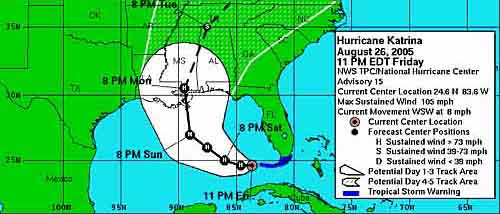
 Follow Me, Boys
Follow Me, Boys
 He was the actor who played Tom Robinson in the movie version of To Kill a Mockingbird (with Gregory Peck playing defense attorney Atticus Finch). That's gonna be the role he'll be remembered for most, but he did tons of other things too. Years after Mockingbird he played Admiral Cartwright in two Star Trek movies, the more recent being Star Trek VI: The Undiscovered Country in 1991. For some reason that's the role I remember him in best: Cartwright's voice rising in protest to the other Starfleet officers, telling them all that the Klingons couldn't be trusted. 'Twas a great performance. Peters also was a voice actor on several cartoons.
He was the actor who played Tom Robinson in the movie version of To Kill a Mockingbird (with Gregory Peck playing defense attorney Atticus Finch). That's gonna be the role he'll be remembered for most, but he did tons of other things too. Years after Mockingbird he played Admiral Cartwright in two Star Trek movies, the more recent being Star Trek VI: The Undiscovered Country in 1991. For some reason that's the role I remember him in best: Cartwright's voice rising in protest to the other Starfleet officers, telling them all that the Klingons couldn't be trusted. 'Twas a great performance. Peters also was a voice actor on several cartoons.
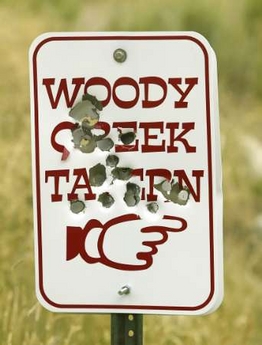
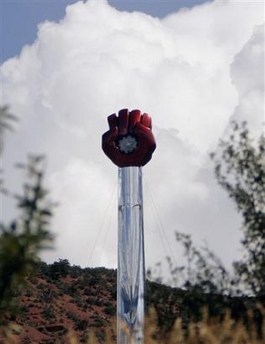
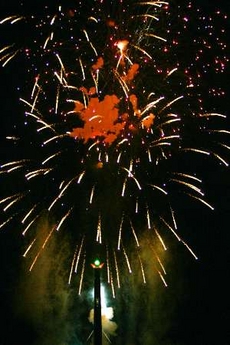
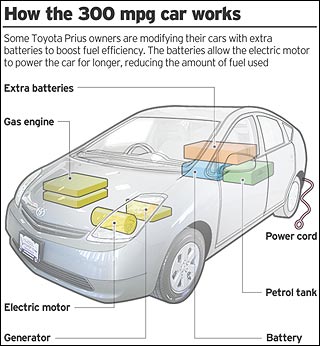
 Coming out next week for the Nintendo DS (which along with its own price drop might be another good reason to finally put this on the Christmas wish list) is
Coming out next week for the Nintendo DS (which along with its own price drop might be another good reason to finally put this on the Christmas wish list) is 


